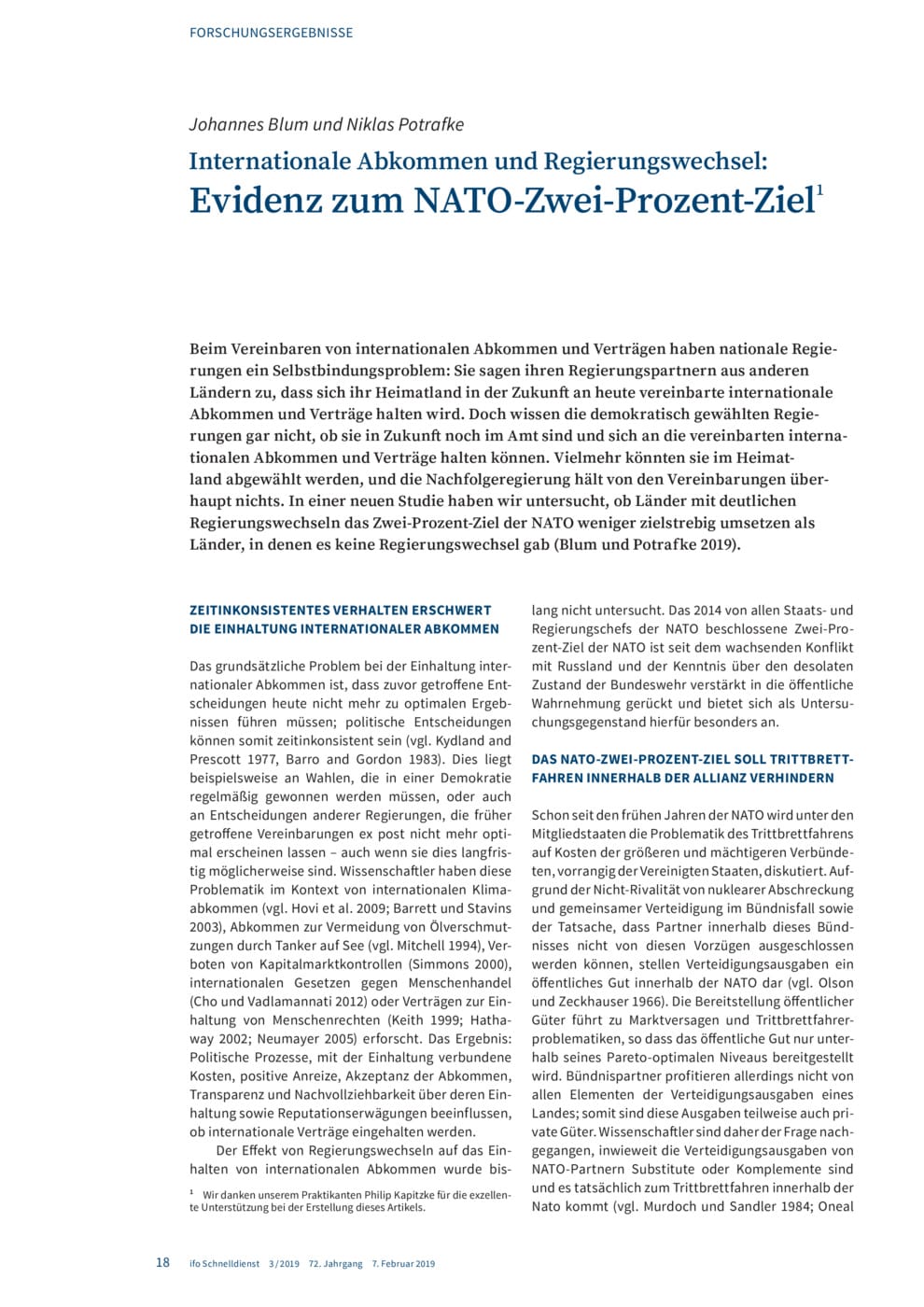International Agreements and Changes of Government: Evidence on NATO’s Two Percent Target
ifo Institut, München, 2019
ifo Schnelldienst, 2019, 72, Nr. 03, 18-21

When national governments sign up to international agreements and treaties, they have a self-imposed problem: they promise their government partners from other countries that their home country will in the future adhere to international agreements and treaties signed today. But the democratically elected governments do not even know whether they will still be in office in the future. On the contrary, they could be voted out of office in their home country, and the successor government may not believe in the agreements at all. In a new study, Johannes Blum and Niklas Potrafke examine whether countries with significant changes in government are less determined to implement NATO's two-percent target – i.e. to spend 2% of GDP on defense spending – than countries where there have been no changes in government. The results suggest that new governments that have particularly little in common with the previous government in terms of party politics are less likely to stick to the goal than governments that had agreed to this target and were still in office several years afterwards. Changes of government appear to have a negative impact on defense spending growth rates. International agreements and treaties should therefore be designed in such a way as to retain the incentive for complying with them even after changes of government.